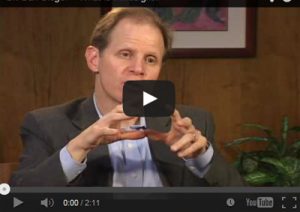Love
 To love (verb)
To love (verb)
The dictionary offers two separate definitions for the word love. One is of a noun and the other is of a verb. The dictionary has unwittingly pinpointed the problem that many of us have with love. Often we treat love as if it were only a noun: “an entity, quality, state, action, or concept.” We forget about love being a verb: “an act, occurrence or mode of being.”
The act of loving is more gratifying for both the lover and the beloved than the state of being in love. The state of being in love is passive and can easily slip from reality into a fantasy about being in love. The act of loving involves real behaviors that keep a person actively engaged in loving.
Learning to love
People are taught manners and how to be polite to one another, but people are not taught about love or how to be loving to one another. Learning how to love is as easy as learning manners. Learning to love involves 3 steps: acknowledge and accept, be grateful and express appreciation, and finally reciprocate with action. This simple process breaks into the self-protective behaviors and attitudes that interfere with partners loving each other. It enables people to accept love with dignity and return love with appreciation. When people follow these suggestions, they find themselves actively involved in being in love.
1. Acknowledge and accept
The first step is to acknowledge and accept what is given to you by your partner. This step is much more difficult than it sounds because most people have little real awareness of what is given to them. They perceive their partners in terms of what they want from them or what they should be getting from them.
To gain some perspective, step back from your partner. As you stand alone, get a feeling for yourself as a separate, independent person who is perfectly capable of functioning on your own. You are just you, alone. Now take a look at your partner, separate from you. Separate from anything you may expect, want or demand of him/her. Separate from a role he/she may be trying to fulfill in relation to you. He/she is just him/her, alone.
Once you are experiencing yourself and your partner from this vantage point as two very separate, individual people, look at what your partner is giving you. Don’t look for grandiose gestures of love and devotion. Don’t look for what he/she ought to be doing for you. Look for real, simple, everyday acts of thoughtfulness, sensitivity and kindness. Look for unique acts of giving that are an expression of his/her nature and his/her sensitivity to your nature. Couples hurt each other by overlooking these acts as love. However when you acknowledge them, you are accepting the love your partner is offering to you.
2. Be grateful and express appreciation
Once you have acknowledged what is being given to you and have then accepted it, the next step is to be grateful and express gratitude to your partner. Your gratitude would not be conveyed with occasional, extravagant and effusive expressions of thanks and appreciation. Your gratitude would manifest itself in tender feelings of thankfulness that you would feel and express every time kindness, sensitivity and generosity was extended to you by your partner. As a result of this ongoing expression of appreciation, you would find yourself living in a constant state of gratitude for your partner’s love for you.
3. Reciprocate with action
You have accepted and expressed gratitude for what your partner has given you. Now, in the final step, you give to your partner. Giving to your partner is not about you as a couple. It is not about how you see him/her in relation to you or your relationship. Giving to your partner involves an awareness of each of you as separate and distinctive people with your own individual traits, interests and desires. This awareness makes you sensitive to what your partner personally wants and needs; at the same time it makes you conscious of what you personally have to offer.
Therefore, the final step in being loving is the act of responding to your partner’s personal needs with a response that is highly individual and unique to you. Because this personal level of giving is such a profound expression of who you are, the more wholeheartedly you give, the more fully you realize yourself. As you continue to actively respond to your partner, your life will be enriched by the joy and satisfaction that comes from expressing gratitude and love through thoughtful acts of consideration and kindness.
Tags: intimacy, love, relationship, true love








i have been with my boyfriend since march of 2011 and its a year and a month now. i love him as much as he loves me but how can i get him to stop thinking that i am cheating on him and i know and he know that we want to spend the rest of our lives together.